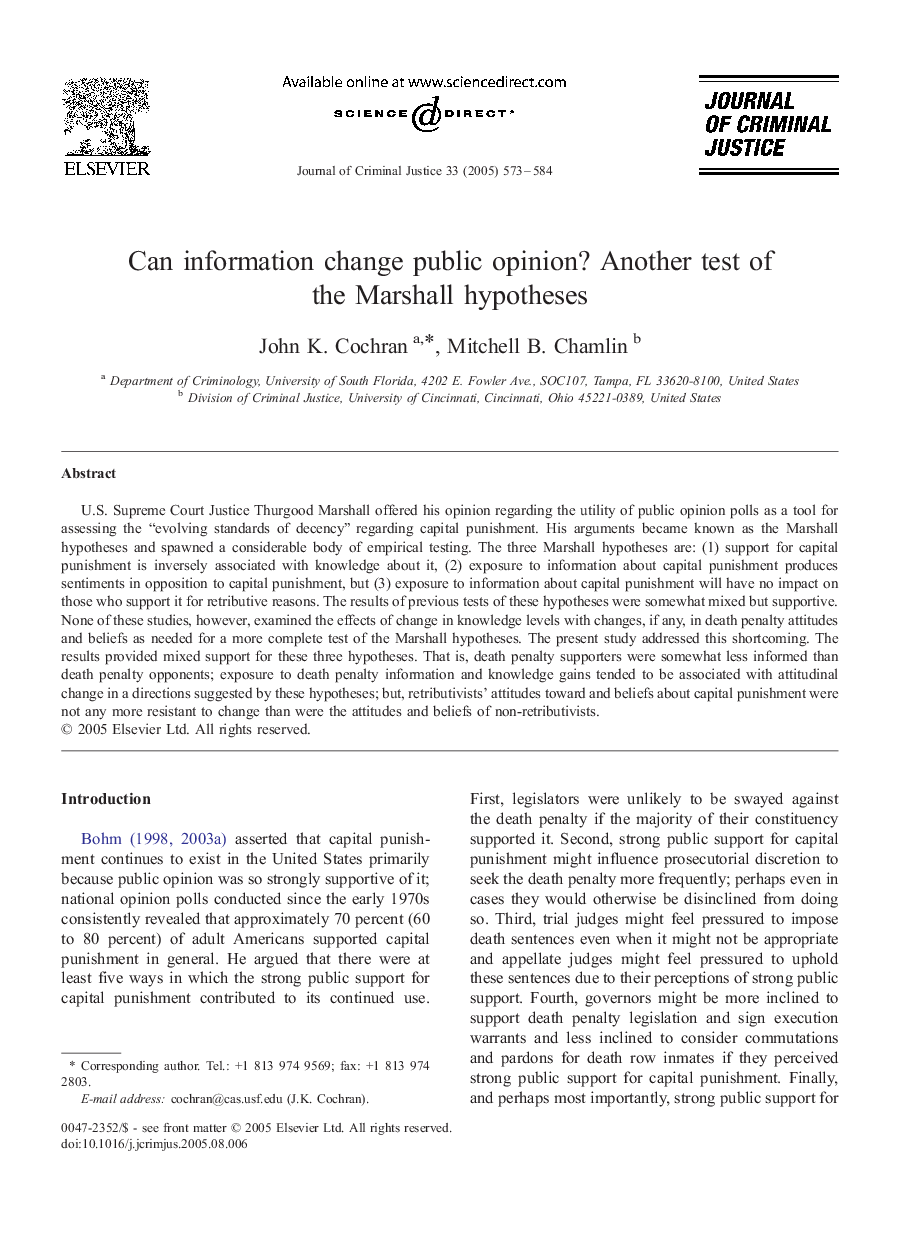| Article ID | Journal | Published Year | Pages | File Type |
|---|---|---|---|---|
| 10437402 | Journal of Criminal Justice | 2005 | 12 Pages |
Abstract
U.S. Supreme Court Justice Thurgood Marshall offered his opinion regarding the utility of public opinion polls as a tool for assessing the “evolving standards of decency” regarding capital punishment. His arguments became known as the Marshall hypotheses and spawned a considerable body of empirical testing. The three Marshall hypotheses are: (1) support for capital punishment is inversely associated with knowledge about it, (2) exposure to information about capital punishment produces sentiments in opposition to capital punishment, but (3) exposure to information about capital punishment will have no impact on those who support it for retributive reasons. The results of previous tests of these hypotheses were somewhat mixed but supportive. None of these studies, however, examined the effects of change in knowledge levels with changes, if any, in death penalty attitudes and beliefs as needed for a more complete test of the Marshall hypotheses. The present study addressed this shortcoming. The results provided mixed support for these three hypotheses. That is, death penalty supporters were somewhat less informed than death penalty opponents; exposure to death penalty information and knowledge gains tended to be associated with attitudinal change in a directions suggested by these hypotheses; but, retributivists' attitudes toward and beliefs about capital punishment were not any more resistant to change than were the attitudes and beliefs of non-retributivists.
Related Topics
Social Sciences and Humanities
Psychology
Applied Psychology
Authors
John K. Cochran, Mitchell B. Chamlin,
